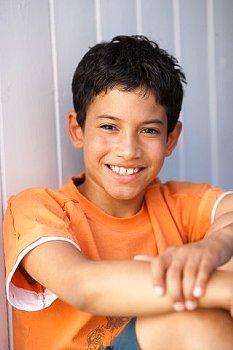 Erik’s parents called us in the spring of his second grade year. He was having regular meltdowns at school and temper tantrums at home. He was a “good reader” but was struggling with comprehension. To make matters worse, he was starting fights on the playground.
Erik’s parents called us in the spring of his second grade year. He was having regular meltdowns at school and temper tantrums at home. He was a “good reader” but was struggling with comprehension. To make matters worse, he was starting fights on the playground.
Erik’s evaluation revealed normal intelligence; his vocabulary acquisition exceeded his years, and his memory for numbers was outstanding. He could read any piece of literature you put in front of him; or rather, he could call out the words.
Erik’s Reading Struggles
Erik was hyperlexic. He had mastered the phonics system and could sound out words with ease. But he was bored with reading; it was the last thing Erik chose to do in his free time, and his reading group at school was stressful and challenging.
He struggled severely with reading comprehension. When Erik read a word, it did not generate a picture in his mind. Having difficulty at such a basic level, he struggled even more when he had to visualize phrases like, “The white dog raced down the beach for the ball.” At the second grade level, the literature isn’t written in single words or phrases, it is written in paragraphs, pages and chapters. Erik was completely lost!
Once the reader has an accurate picture in his head, the reader must think critically about the literature; making inferences to figure out the conflict in the story as well as the characters’ motives and feelings. These critical thinking skills are the reader’s anchor to the text. They are the reasons that readers enjoy literature and hunger for more. But it was not happening for Erik.
The other skill that is closely linked with comprehension is “social thinking” – being able to think about others. To succeed in social situations, children must be social detectives and figure out what other people are thinking. They must study body language and eye gaze and figure out people’s feelings and motives and then decide how to react.
Recess was Erik’s Biggest Bummer
When asked about his school day, Erik said that recess was his worst time of the day. He didn’t know how to play with friends. He had his own interpretation of rules for games, took offense to anyone who violated his rules and started arguments.
Erik didn’t know how to begin conversations; it didn’t occur to him to ask about a friend’s interests. Erik only talked about himself.
Erik’s Comprehensive Intervention
We enrolled Erik in our combined language, social thinking and literacy program six hours a week. In his language intervention, Erik learned to listen to a story, make a mental movie, and then think critically to make inferences, draw conclusions and make predictions. He learned to organize events into a logical sequence and retell a captivating story.
In his social thinking group, Erik learned to use expected behaviors like keeping his body, brain and eyes in the group and always thinking about the other participants. Erik was becoming a master at conversation!
In his literacy intervention, his instructor asked him to read a sentence from his story and tell her what he pictured. When that was understood, she asked him to make a prediction – was Toad going to give up on growing a garden or would he persevere? Sometimes she asked Erik to make an inference – how did Toad feel about his challenges? And to help Erik relate to the literature and appreciate it, she asked him to make a connection – did Erik ever feel frustrated when, like Toad in the garden, he was really trying to accomplish a project with little to no success?
Erik was our Shining Star
In all the years we have been offering combined language and literacy intervention, we have seldom seen a child progress as quickly as Erik. He began with poor language comprehension and minimal reading comprehension and, within 6 months, progressed at least 2 grade levels – up to the 2nd grade.
Erik’s greatest accomplishment of all, though, was his social interaction. He was our shining star! He is now popular with the other participants, because he asks questions about their interests. He is a humble winner and a gracious loser when we play games. He makes comments that make others feel good, because he knows that doing so will also make him feel good about himself.
After 6 months of intervention, it looks like Erik will have a pretty typical life. He’s not completely adept at reading comprehension or social interaction, but he is well on his way. If he keeps making the kind of progress he has made so far, he will close the gap!
Erik is an excellent example of what can be done with appropriate early intervention. If you know someone who could use help with reading comprehension or social thinking, call us at 858.509.1131 or contact us via our form. It is never too early or too late to begin!